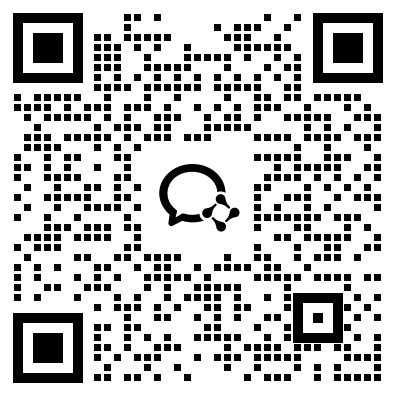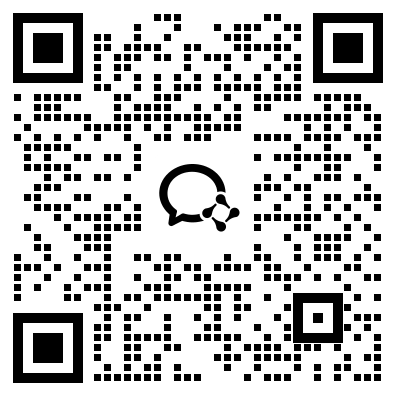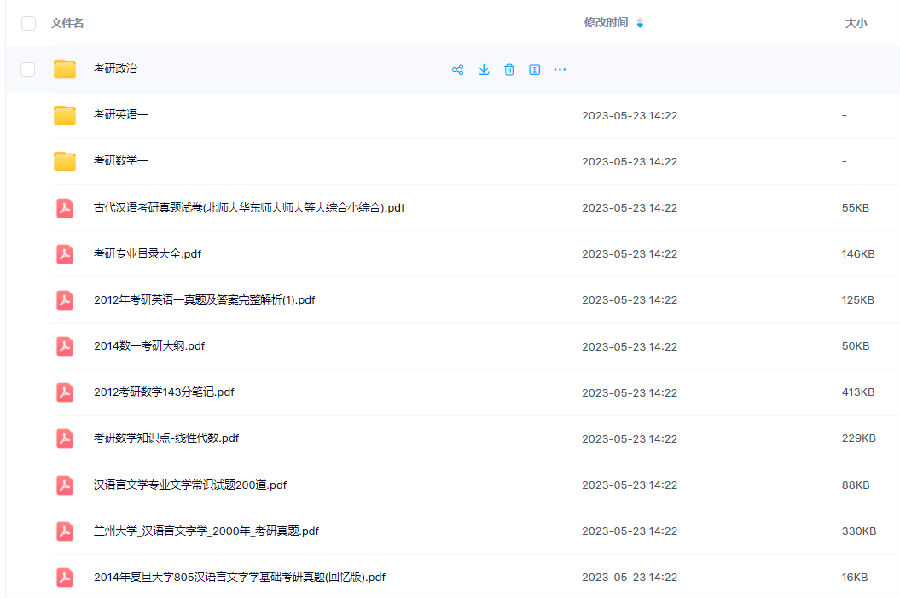特惠-26考研冲刺
特惠-27考研课
双证-在职硕士
免联考-同等学力
26考研-肖八笔记
26考研-时政刷题
26考研-作文押题
26考研-全套真题
26考研-提前估分
保研-路线图
27考研-智能择校
27考研-英语测评
27考研-新大纲对比
热门-计算机择校

扫码加入训练营
牢记核心词
学习得礼盒
Directions: Read the passage and fill in each blank with one word. Choose the word in one of the following three ways: according to the context, by using the correct form of the given word, or by using the given letters of the word. Remember to write the answers on the answer sheet.
What's your earliest childhood memory? Can you remember learning to walk? Or talk? The first time you 51 thunder or watched a television program? Adults seldom 52 events much earlier than the year or so before entering school, just as children younger than three or four 53 retain any specific, personal experiences. A variety of explanations have been 54 by psychologists for this "childhood amnesia" (儿童失忆症). One argues that the hippocampus, the region of the brain which is responsible for forming memories, does not mature 55 about the age of two. But the most popular theory 56 that, since adults do not think like children, they cannot 57 childhood memories. Adults think in words, and their life memories are like stories or 58—one event follows 59 as in a novel or film. But when they search through their mental 60 for early childhood memories to add to this verbal life story, they don't find any that fits the 61 . It's like trying to find a Chinese word in an English dictionary.
Now psychologist Annette Simms of the New York State University offers a new 62 for childhood amnesia. She argues that there simply 63 any early childhood memories to recall. According to Dr. Simms, children need to learn to use 64 spoken description of their personal experiences in order to turn their own short-term, quickly 65 impressions of them into long-term memories. In other 66 , children have to talk about their experiences and hear others talk about 67 --Mother talking about the afternoon 68 looking for seashells at the beach or Dad asking them about their day at Ocean Park. Without this 69 reinforcement, says Dr. Simms, children cannot form 70 memories of their personal experiences.
1. A. listened B. felt
C. touched D. heard
2. A. involve B. interpret
C. recall D. resolve
3. A. largely B. rarely
C. merely D. really
4. A. canceled B. figured
C. proposed D. witnessed
5. A. until B. once
C. after D. since
6. A. magnifies B. intervenes
C. contains D. maintains
7. A. reflect B. attain
C. access D. refer
8. A. narratives B. forecasts
C. regulations D. descriptions
9. A. the rest B. another
C. the other D. others
10. A. outputs B. dreams
C. flashes D. files
11. A. footstep B. pattern
C. frame D. landscape
12. A. emphasis B. arrangement
C. explanation D. factor
13. A. aren't B. weren't
C. isn't D. wasn't
14. A. anyone else B. anyone else's
C. some else D. someone else's
15. A. forgotten B. remembered
C. forgetting D. remembering
16. A. senses B. cases
C. words D. means
17. A. him B. theirs
C. it D. them
18. A. used B. chosen
C. taken D. spent
19. A. habitual B. verbal
C. pretty D. mutual
20. A. permanent B. conscious
C. subordinate D. spiritual
【经综】资料这里有↑↑↑

 资料下载
资料下载
2014年-2025年考研历年真题汇总
发布时间:2024-04-25扫码添加【考研班主任】
即可领取资料包
考研大纲PDF电子版下载-历年(附解析)
发布时间:2024-04-25扫码添加【考研班主任】
即可领取资料包
2026年考研政数英备考资料zip压缩包
发布时间:2024-04-25扫码添加【考研班主任】
即可领取资料包
考研英语大纲词汇5500打印版(基础必备)
发布时间:2024-04-25扫码添加【考研班主任】
即可领取资料包
新东方在线考试模拟题【12套】
发布时间:2024-04-25扫码添加【考研班主任】
即可领取资料包
2026年考研专业课知识点总结
发布时间:2024-04-25扫码添加【考研班主任】
即可领取资料包
新东方考研资料下载地址
发布时间:2023-05-17新东方在线考研资料合集
下载方式:微信扫码,获取网盘链接

目录:
1.2013-2023年近10年政数英真题及解析PDF版(新东方)
2.2013-2023年专业课考试历年真题及解析PDF版
3.24考研复习备考资料大合集:大纲+备考资料+词汇书+考前押题+自命题
资料介绍:
1.2013-2023年近10年政数英真题及解析PDF版(新东方)
 、
、
2.2013-2023年专业课考试历年真题及解析PDF版


3.24考研复习备考资料大合集

3.24考研复习备考资料:考研大纲

3.24考研复习备考资料:政数英备考资料+自命题真题

------------------
考研备考过程中,尤其是专业课部分,参考往年的考试真题,对于我们的复习有更好的帮助。北京大学考研真题资料都有哪些?小编为大家进行了汇总。
北京大学考研真题资料-公共课

北京大学考研真题资料-专业课


以上就是关于“北京大学考研真题资料下载(历年汇总)”的整理,更多考研资料下载,请关注微信获取下载地址。
2024考研公共课必背知识点汇总
发布时间:2023-01-03扫码添加【考研班主任】
即可领取资料包
2013-2023考研历年真题汇总
发布时间:2023-01-03扫码添加【考研班主任】
即可领取资料包
考研英语大纲词汇(PDF可打印)
发布时间:2023-01-03扫码添加【考研班主任】
即可领取资料包
2024考研专业课知识点总结
发布时间:2023-01-03扫码添加【考研班主任】
即可领取资料包
2023考研政治 内部押题 PDF
发布时间:2022-11-16扫码添加【考研班主任】
即可领取资料包
徐涛:23考研预测六套卷
发布时间:2022-11-16扫码添加【考研班主任】
即可领取资料包
考研政数英冲刺资料最新整理
发布时间:2022-11-16扫码添加【考研班主任】
即可领取资料包
23考研答题卡模板打印版
发布时间:2022-11-16扫码添加【考研班主任】
即可领取资料包
2023考研大纲词汇5500PDF电子版
发布时间:2022-07-28扫码添加【考研班主任】
即可领取资料包
考研历年真题(公共课+专业课)
发布时间:2022-07-28扫码添加【考研班主任】
即可领取资料包
考研英语阅读100篇附解析及答案
发布时间:2022-01-07扫码添加【考研班主任】
即可领取资料包
新东方考研学霸笔记整理(打印版)
发布时间:2022-01-07扫码添加【考研班主任】
即可领取资料包
2001-2021年考研英语真题答案(可打印版)
发布时间:2022-01-07扫码添加【考研班主任】
即可领取资料包
考研英语词汇5500(完整版下载)
发布时间:2022-01-07扫码添加【考研班主任】
即可领取资料包
2022考研政审表模板精选10套
发布时间:2022-01-07扫码添加【考研班主任】
即可领取资料包
历年考研真题及答案 下载
发布时间:2021-12-09扫码添加【考研班主任】
即可领取资料包
考研政审表模板汇总
发布时间:2020-06-17扫码添加【考研班主任】
即可领取资料包
近5年考研英语真题汇总
发布时间:2020-06-17扫码添加【考研班主任】
即可领取资料包
考研英语大纲词汇5500
发布时间:2020-06-17扫码添加【考研班主任】
即可领取资料包
2022考研12大学科专业排名汇总
发布时间:2019-11-21扫码添加【考研班主任】
即可领取资料包
2023考研政治复习备考资料【珍藏版】
发布时间:2019-11-21扫码添加【考研班主任】
即可领取资料包
考研英语万能模板+必备词汇+范文
发布时间:2019-11-21扫码添加【考研班主任】
即可领取资料包
考研数学一、二、三历年真题整理
发布时间:2019-11-21扫码添加【考研班主任】
即可领取资料包

添加班主任领资料
添加考研班主任
免费领取考研历年真题等复习干货资料

 推荐阅读
推荐阅读
五月是备考经济类联考的关键月份,科学合理的复习计划至关重要。本文将为您提供详尽的备考计划,涵盖数学、英语、经济学两个科目的具体
来源 : 网络 2025-04-16 16:40:42 关键字 : 经济类联考5月备考
4月是考研经济类联考备考的关键时期。科学合理的复习计划将帮助你高效复习,确保每一个知识点都扎实牢靠。以下是详细的公共课和专业课
来源 : 网络 2025-04-08 18:33:11 关键字 : 考研经济类联考
为迎战2026年经济类联考,把握备考关键时刻,选择高效优质的网课是决胜的关键。作为教育行业的权威,新东方在线为经济类联考提供了一系
来源 : 网络 2025-03-21 07:34:00 关键字 :
备考2026年经济类联考需要科学的时间管理、系统的学习安排以及充分的自我评估。本文为大家提供了详细的备考安排,帮助考生们明确每个阶
来源 : 网络 2025-01-23 07:20:00 关键字 :
经济类联考(经济学硕士联考)对考生的综合素质和学科基础都有较高要求。科学的时间规划和高效的复习策略将帮助你在备考过程中从容应对各
来源 : 网络 2025-01-13 07:30:00 关键字 :

 资料下载
资料下载
扫码添加【考研班主任】
即可领取资料包
扫码添加【考研班主任】
即可领取资料包
扫码添加【考研班主任】
即可领取资料包
扫码添加【考研班主任】
即可领取资料包
扫码添加【考研班主任】
即可领取资料包
扫码添加【考研班主任】
即可领取资料包
新东方在线考研资料合集
下载方式:微信扫码,获取网盘链接

目录:
1.2013-2023年近10年政数英真题及解析PDF版(新东方)
2.2013-2023年专业课考试历年真题及解析PDF版
3.24考研复习备考资料大合集:大纲+备考资料+词汇书+考前押题+自命题
资料介绍:
1.2013-2023年近10年政数英真题及解析PDF版(新东方)
 、
、
2.2013-2023年专业课考试历年真题及解析PDF版


3.24考研复习备考资料大合集

3.24考研复习备考资料:考研大纲

3.24考研复习备考资料:政数英备考资料+自命题真题

------------------
考研备考过程中,尤其是专业课部分,参考往年的考试真题,对于我们的复习有更好的帮助。北京大学考研真题资料都有哪些?小编为大家进行了汇总。
北京大学考研真题资料-公共课

北京大学考研真题资料-专业课


以上就是关于“北京大学考研真题资料下载(历年汇总)”的整理,更多考研资料下载,请关注微信获取下载地址。
扫码添加【考研班主任】
即可领取资料包
扫码添加【考研班主任】
即可领取资料包
扫码添加【考研班主任】
即可领取资料包
扫码添加【考研班主任】
即可领取资料包
扫码添加【考研班主任】
即可领取资料包
扫码添加【考研班主任】
即可领取资料包
扫码添加【考研班主任】
即可领取资料包
扫码添加【考研班主任】
即可领取资料包
扫码添加【考研班主任】
即可领取资料包
扫码添加【考研班主任】
即可领取资料包
扫码添加【考研班主任】
即可领取资料包
扫码添加【考研班主任】
即可领取资料包
扫码添加【考研班主任】
即可领取资料包
扫码添加【考研班主任】
即可领取资料包
扫码添加【考研班主任】
即可领取资料包
扫码添加【考研班主任】
即可领取资料包
扫码添加【考研班主任】
即可领取资料包
扫码添加【考研班主任】
即可领取资料包
扫码添加【考研班主任】
即可领取资料包
扫码添加【考研班主任】
即可领取资料包
扫码添加【考研班主任】
即可领取资料包
扫码添加【考研班主任】
即可领取资料包
扫码添加【考研班主任】
即可领取资料包

 阅读排行榜
阅读排行榜
 相关内容
相关内容